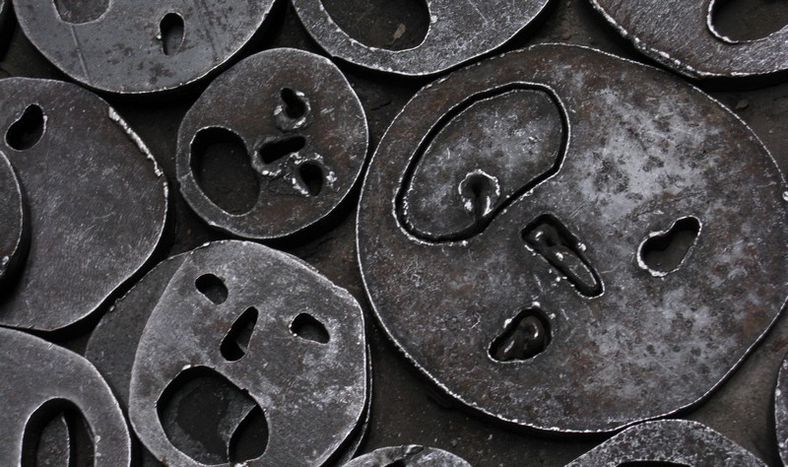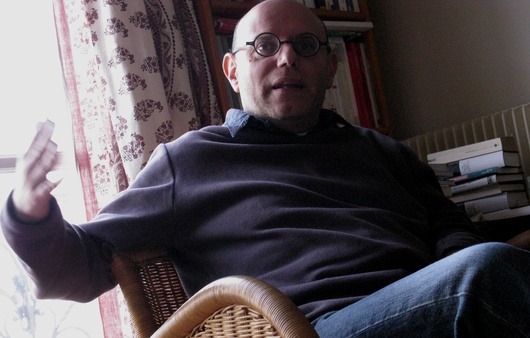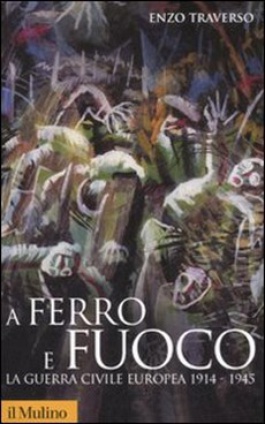
Holocaust memorial day in the European consciousness
Published on
Translation by:
 Fiona Herdman Smith
Fiona Herdman Smith
Italian historian Enzo Traverso, 52, says the Holocaust memorial day, which falls on 27 January, ‘cannot be considered unrelated to what is happening in the Middle East today’. Interview
 Enzo Traverso is a professor at the University of Picardy who has lived in Paris since 1985. He specialises in the history of the two world wars, Nazism and anti-Semitism. His works include Auschwitz and the intellectuals: The Holocaust in postwar culture (Il Mulino, 2004) and Put to the sword: The European civil war 1914-1945 (Il Mulino, 2007). On the anniversary of the liberation of Auschwitz concentration camp by the Soviet Union in 1945, he describes its memory in Europe today as a ‘contradictory phenomenon’.
Enzo Traverso is a professor at the University of Picardy who has lived in Paris since 1985. He specialises in the history of the two world wars, Nazism and anti-Semitism. His works include Auschwitz and the intellectuals: The Holocaust in postwar culture (Il Mulino, 2004) and Put to the sword: The European civil war 1914-1945 (Il Mulino, 2007). On the anniversary of the liberation of Auschwitz concentration camp by the Soviet Union in 1945, he describes its memory in Europe today as a ‘contradictory phenomenon’.
What is the memory of the Holocaust in Europe?
The memory of the Holocaust in western Europe has historically been a kind of spur for ‘anti-racist’ movements. In France, at the time of the war in Algeria (1954-1962 - ed), it was related to the struggle against the politics of oppression and persecution. Twenty years later, however, this memory has become ‘institutionalised’: it has ceased to be ‘antagonistic’ towards power, becoming a shared memory, integrated into the establishment and the object of official commemoration ceremonies.
This is a contradictory phenomenon: on the one hand, if institutions take responsibility for memory, it indicates the expression of a genuine historical consciousness which has become a kind of civil religion; on the other hand, the consequences of this action should make us reflect on public traditions of the past. During this time of war in Gaza, memory is used as a sort of blank cheque for Israel as the state that embodies the memory of the Holocaust. Everyone abhors the bombing but every criticism is preceded by a statement of solidarity in principle with Israel. Or take a country like France, where the memory of the Shoah is so important: in February 2005, a month after the media hype surrounding the commemoration, the national assembly voted for a law defining colonialism as ‘positive’. This means that commemoration days, more than being just ritual occasions, and as is often the case, rhetorical events devoid of meaning, should be the occasion for reflection on the public customs of the past and the political customs of commemoration.
What meaning should there be?
An undeniable ethical or political principle is that memory, by its very nature, is not a remembrance of a frozen, immobile, immutable past. Memory lives in the present. Remembering the Holocaust today in Europe means debating and opposing the exclusion, racism and oppression we see today.
Remembering the Holocaust today in Europe means debating and opposing the exclusion, racism and oppression we see today
Participating in the commemorations, only to remain indifferent to the fact that since (Nicolas) Sarkozy became president of France (in May 2007) there have been round-ups of ‘illegal’ immigrants outside schools means that the commemoration day is just a smokescreen. These things need to be said. The fact that these commemorations are taking place in such an apathetic environment baffles me.
Is there a pan-European public memory of the Holocaust?
There seem to be a few pan-European trends. It is obvious that it cannot be the same in Germany (the country that conceived and carried out the Holocaust), in France (the country which today has the largest Jewish population in Europe) and Spain (which did not take part in the second world war). If we take the example of Spain, the historical memory law (Ley de Memoria Histórica de España) which was passed in October 2007 would not exist were it not for the memorial laws which were announced in various western European countries in recent years. In Spain today (this is a difference of opinion I have with some of my Spanish colleagues), there is a strong tendency to assimilate the violence of the Franco era with genocide, which is incorrect from a historiographical perspective.
For some countries the Holocaust forms part of national memory. For others, such as Spain, it is not commemorated…
 I usually identify three European memorial spaces: western, Eastern and post-colonial. The first is the space occupied by the founding EU countries (Germany, France, Italy and Iberian countries), at the heart of which is the memory of Auschwitz (the Nazi concentration camp established for Jews in southwestern Poland in 1940). In German this memory looms large in public: today, it is impossible to consider oneself to be German without acknowledging the Nazi past in this ‘German-ness’.
I usually identify three European memorial spaces: western, Eastern and post-colonial. The first is the space occupied by the founding EU countries (Germany, France, Italy and Iberian countries), at the heart of which is the memory of Auschwitz (the Nazi concentration camp established for Jews in southwestern Poland in 1940). In German this memory looms large in public: today, it is impossible to consider oneself to be German without acknowledging the Nazi past in this ‘German-ness’.
Then there is the eastern space, or the countries of the former Warsaw Pact (1955, the soviet equivalent of NATO). They are building a national identity around the communist past which makes the nation itself the victim, because it was oppressed by soviet domination. It is a memory with a strong nationalistic flavour and distances itself from the Holocaust as belonging to the past. The third space is the post-colonial memory of a section of European society: several million people of ‘post-colonial’ origins (either citizens or immigrants) and a memory of colonialism, conflicting relations with Europe and oppression. This memory exists and provokes detailed discussion.
To conclude with an example: 8 May 1945, the end of world war two. For the west it marked the end of suffering and the start of an era of peace; in eastern Europe it marked the end of the Nazi occupation and the start of the Soviet era. Shifting to Algeria, however, 8 May 1945 is the anniversary of the Sétif revolt, one of the last French colonial massacres.
Translated from La Giornata della Memoria della Shoah e la coscienza d’Europa


